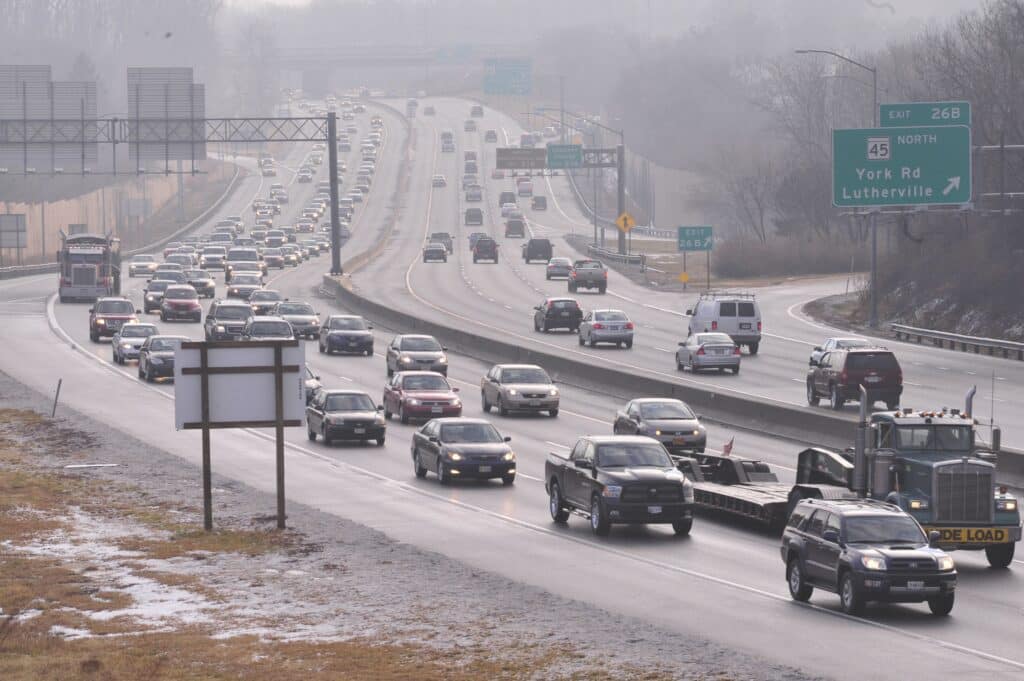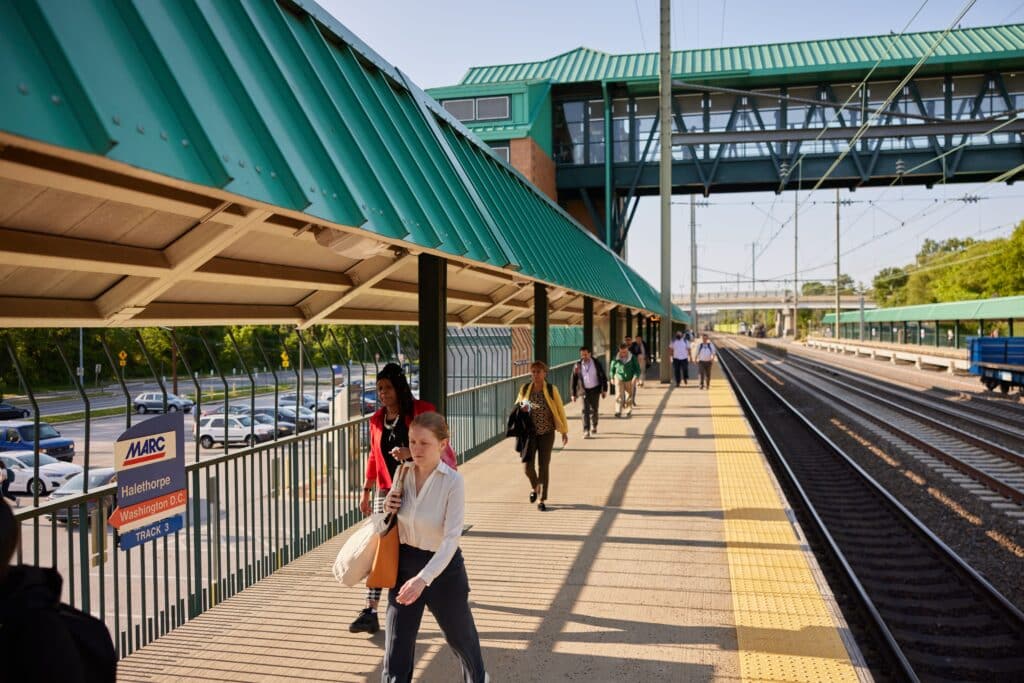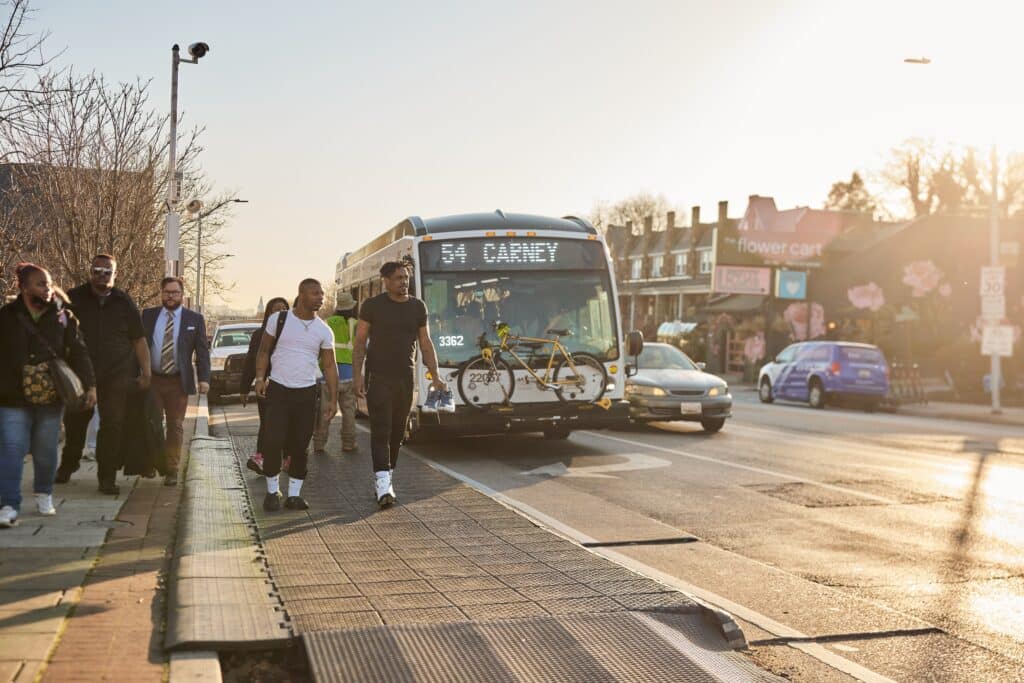
By Brian O’Malley, President & CEO, Central Maryland Transportation Alliance
The Central Maryland Transportation Alliance was formed in 2007 as a diverse coalition of corporate and civic leaders uniting business, philanthropic, and institutional sectors around a common agenda: improving and expanding transportation options for the citizens and businesses of Central Maryland. In this blog, President & CEO Brian O’Malley discusses recent efforts to pass more climate-friendly transportation legislation in the state.
The climate crisis is here and the transportation sector is the number one source of Greenhouse Gas (GHG) emissions nationally and in Maryland. Experts agree we can’t reach GHG reduction targets through conversion to electric vehicles alone; we must reduce Vehicle Miles Traveled (VMT), that is, how much cars and trucks drive on our roads.
In addition to reducing GHG emissions, investing in strategies to reduce VMT has co-benefits of improving mobility, access to jobs and other destinations, and reducing particulate matter from cars (including EVs). There is a strong return on investment in terms of public benefits.
Maryland’s Climate Solutions Now Act mandates reducing GHG emissions by 60% below 2006 levels by 2031 and achieving net-zero emissions by 2045. The State of Maryland hired the Center for Global Sustainability at the University of Maryland to develop a report titled Maryland’s Climate Pathway to present steps we can take to meet those targets. The report indicates that Maryland must find ways to reduce VMT yet says “Maryland has an uphill battle. Total annual VMT steadily rose from 2014 through 2019.”
The Central Maryland Transportation Alliance, an advocacy organization, works to bring about excellent transportation in greater Baltimore by reducing VMT and GHG emissions from the transportation sector.
We do that in many ways, including free Transportation 101 workshops for people who want to improve transportation in their communities, publishing a Transportation Report Card, and watchdogging and commenting on transportation budgets at state and local governments.

We also work with other advocates and legislators in Maryland to pass new legislation like The Transportation & Climate Alignment Act, which is modeled on recently enacted policies in Colorado and Minnesota. It would ensure that Maryland’s investments in transportation move us closer to our climate goals and targets, and give people more choices for making daily trips.
Specifically, the act would require the Maryland Department of Transportation or other transportation planning agencies to measure, assess, and mitigate any increase in GHG or vehicle travel caused by planned highway expansion projects over $10 million. Mitigations may include bike & walk networks, smart growth strategies, and investments in public transit. It also establishes state policy that will help Maryland comply with a November 2023 USDOT rule requiring recipients of federal transportation funding to work toward reducing greenhouse gas emissions from roadway travel.
Paul Wiedefeld, Maryland’s Secretary of Transportation, issued a statement praising the USDOT rule and saying “A first step to cutting carbon pollution from the transportation sector is measuring emissions and setting specific and declining emission reduction targets tied to our investment program.” U.S. Senator Ben Cardin also wrote an op-ed praising both the USDOT rule and Maryland’s leadership on setting reduction targets.

Leading the effort in Maryland are Delegate Mark Edelson and Senator Clarence Lam. They are supported by a group of advocacy organizations including RMI, the Union of Concerned Scientists, the Maryland Chapter of the Sierra Club, CERES, and the Central Maryland Transportation Alliance.
The group has worked to build awareness and support for the policy. In January they held an educational webinar featuring speakers who worked on enacting the policies in Colorado and Minnesota. RMI also plans to publish a report on the many benefits such a policy would bring to Maryland.
Advocates hope to build broad support for this policy in Maryland, finally making transportation spending part of the solution to the climate crisis. The Maryland General Assembly could pass the bill by April and it could be enacted before the end of 2024.

We are building a coalition and invite interested people to contact us here.
Green 2.0 doesn’t engage in lobbying activities, and the views expressed in this blog do not represent support or sponsorship by Green 2.0.
